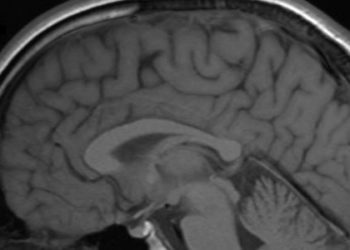The CATIE trial: High rates of medication discontinuation in schizophrenic patients [Classics Series]
1. Approximately 74% of schizophrenic patients discontinued their medications before 18 months, with the median being 6 months.
2. Olanzapine was found to have a significantly longer time to discontinuation than quetiapine and risperidone.
3. Olanzapine was associated with significantly more weight gain and increases in glycosylated hemoglobin, cholesterol, and triglycerides when compared to the other antipsychotics.
Original Date of Publication: September 2005
Study Rundown: The CATIE trial demonstrated that schizophrenic patients discontinued their antipsychotics at very high rates, thereby limiting the effectiveness of drug therapy. Olanzapine was found to be significantly more effective than other atypical antipsychotics (i.e., quetiapine, risperidone) in terms of time to discontinuation; however, olanzapine was also associated with significantly more weight gain and increases in glycosylated hemoglobin, cholesterol, and triglyceride levels. The study was funded by the National Institute of Mental Health. Pharmaceutical companies contributed drug supplies for the study and advice regarding dosing; they were not otherwise involved in the design of the study, or the analyses and interpretation of its results.
In-Depth [randomized, controlled trial]: Published in NEJM in 2005, the CATIE trial is a double-blind, randomized controlled study that sought to compare the relative effectiveness of atypical and typical antipsychotics. A total of 1,493 patients were recruited from 57 different centres across the United States, and were randomly assigned to receive olanzapine (7.5-30 mg daily), quetiapine (200-800 mg daily), risperidone (1.5-6 mg daily), ziprasidone (40-160 mg daily), or perphenazine (8-32 mg daily); all medications were administered as identical-appearing capsules. Patients were included in the study if they were between 18 and 65 years of age, if they were diagnosed with schizophrenia, and if they were able to take antipsychotics. The primary outcome was the discontinuation of treatment for any reason, as this represents a major problem in managing patients with schizophrenia. It was thought that this measure would represent the efficacy, safety, and tolerability of different treatment options. Secondary outcomes included reasons for discontinuation and scores on the Positive and Negative Syndrome Scale (PANSS) and the Clinical Global Impression (CGI) scale.
Approximately 74% of patients discontinued their assigned treatment before the 18-month mark, with the median time to discontinuation being about 6 months. The time to discontinuation was significantly longer in the olanzapine group, when compared to the quetiapine (HR 0.63), risperidone (HR 0.75), ziprasidone (HR 0.76), and perphenazine group (HR 0.78). After adjusting for multiple comparisons, however, significant differences only remained between olanzapine and quetiapine/risperidone. The study also demonstrated that PANSS and CGI scores significantly improved over time. Notably, olanzapine was significantly associated with greater weight gain, as well as greater increases in glycosylated hemoglobin, total cholesterol, and triglycerides when compared to the other study drugs.
Image: PD
©2012-2014 2minutemedicine.com. All rights reserved. No works may be reproduced without expressed written consent from 2minutemedicine.com. Disclaimer: We present factual information directly from peer reviewed medical journals. No post should be construed as medical advice and is not intended as such by the authors, editors, staff or by 2minutemedicine.com. PLEASE SEE A HEALTHCARE PROVIDER IN YOUR AREA IF YOU SEEK MEDICAL ADVICE OF ANY SORT.






![Childhood ADHD associated with increased risk of suicide [Physician Comment]](https://www.2minutemedicine.com/wp-content/uploads/2013/03/PET-image1-e1377449984183-75x75.jpg)
